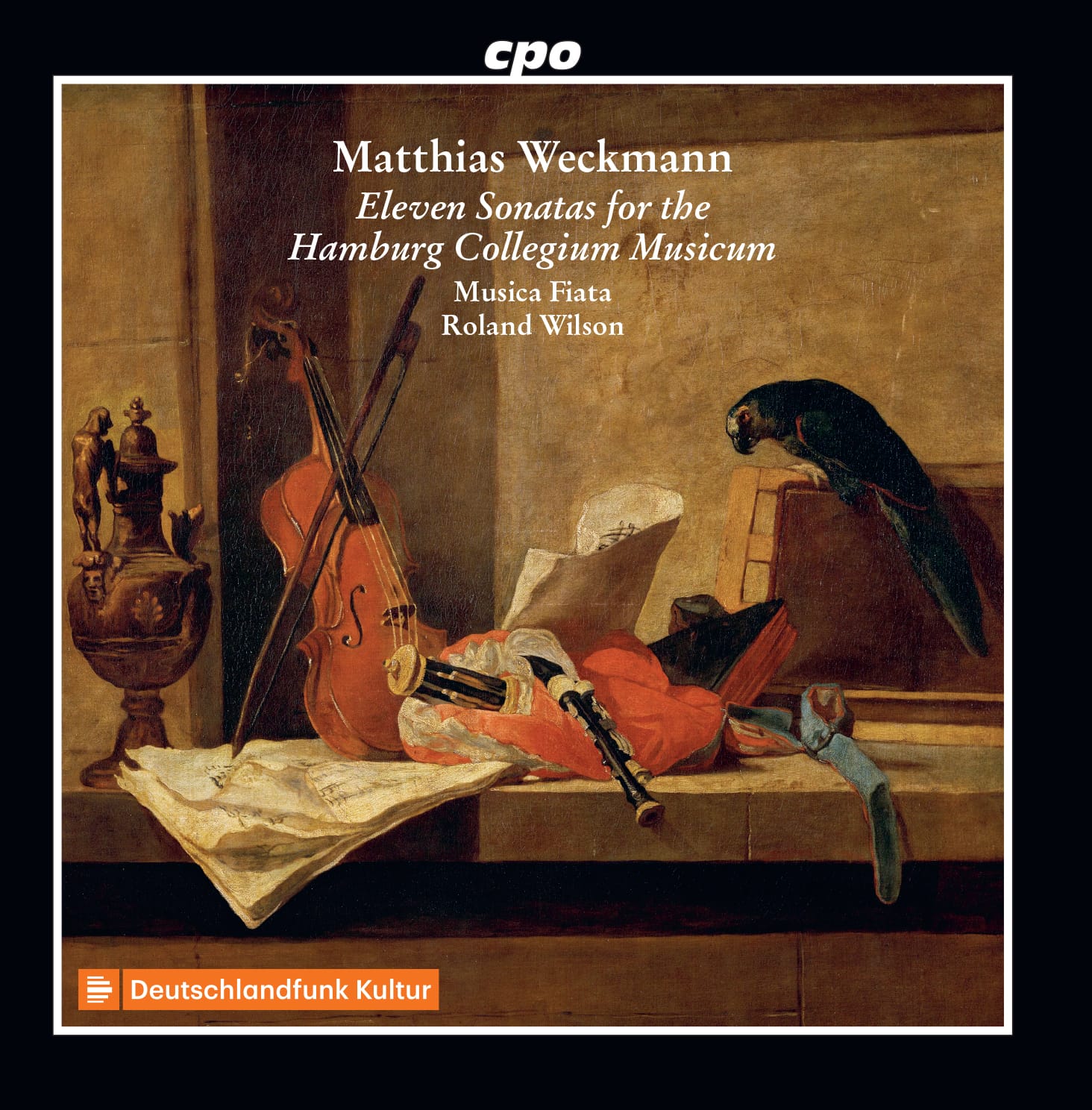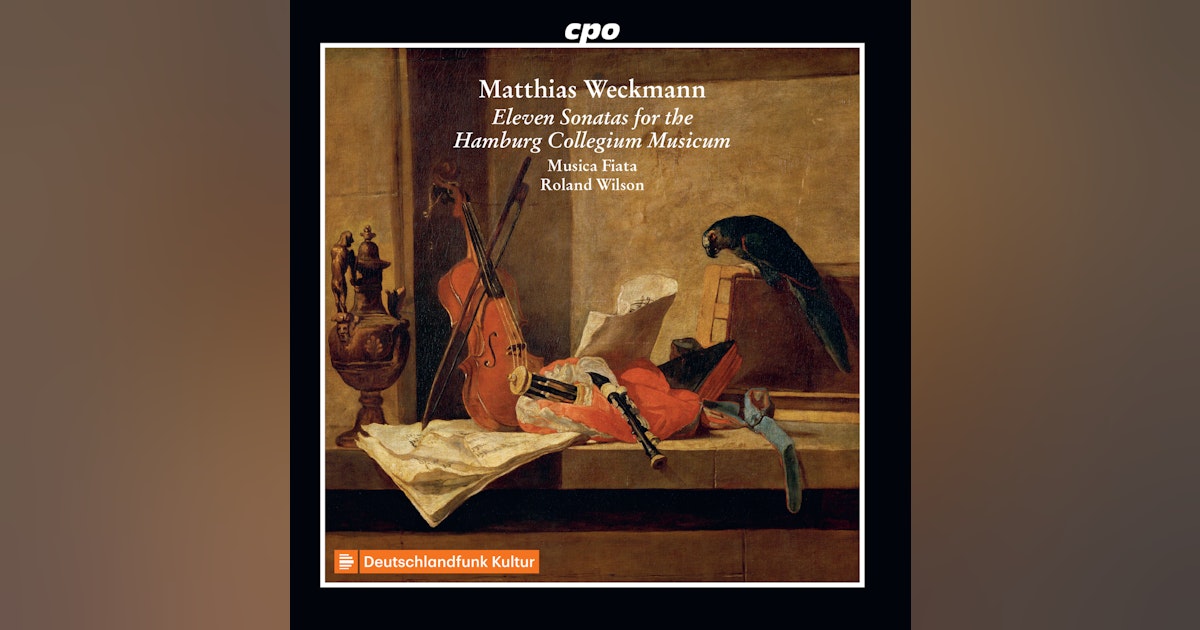
This is fascinating: it reminded me so much of the amazing Les Éléments concert in Périgord last summer; music of openness and exuberance of invention.
Matthias Weckmann seemed to be pulled towards Dresden as if by some sort of centrifugal force: born around 1616 in Thuringia, he possibly was brought to Heinrich Schütz’s attention at Mühlhusen; he became a member of the court at Dressden, where he was taken under the wing of Schütz, who subsequently set him to Hamburg to study with Jacob Praetorius. Thence, after three years, to Denmark (o collect compositions Schütz left there!). Back in Dresden, Wckmann worked as an organist, but the Thirty Years War resulted in difficulties (including no wages!) and he moved back to Denmark. He was recalled to Dresden in 1646; and we know the in 1649 he entered into a musical competition with Froberge (Weckmann won).
Weckmann’s later years were spent in Hamburg, however, and it is from this period the most of his surviving compositions hail. .
In 1660, Weckmnn domed the Collegium Musicum: hence the present disc’s subtitle, “Eleven Sonatas fo the Hamburg Collegium Musicum”. The composer and music theorist Christoph Bernard directed a piece by Weckmann (In te Domine speravi) at Weckmann’s funeral. Bernard claimed later that he cried at the words “in manus tuas commendo spiritum meum: redemisti me Dominus Deus veritatis.’ (Into thine hand I commit my spirit: thou hast redeemed me, O Lord God of truth.)
There are in total eleven surviving Sonatas for the Collegium Musicum, all on his disc. There his wonderful variety here: sonatas VIII and X are for two violins and bass instrument (dulcian and viola da gamba respectively), while the opening one we hear, No. 2 is for cornettino, violin, trombone, bassoon and basso continuo: they stand in high contrast.
The extravagance of No. IV is in full evidence, though, while the the joy in counterpoint in Sonata VI is infectious (and listen to the excellence in the latter of director Roland Wilson’s cornettino in No. VI – which, if I’m honest, is my favourite Sonata!):
There are eleven sonatas: but twelve tracks! Sitting amongst them centrally is a Fantasia a 5 for violin, cornet, viola da gamba, trombone, bombardon (!) and basso continuo. As a piece, it is more restrained than I expected – perhaps it’s the performance, as I can imagine it more jaunty:
The Sonata XI is more threadbare and experimental in tone (violin, cornettino, viola da gamba, basso and basso continuo); it certainly appeals to me, and offers a rather nice contrast:
And, for further contrast, Sonata V is a very individual interiority, restrained, darker:
The basis of this is so-called “Spaltklang” instrumentation, which is characterised by clarity of individual line, hence the extravagance of linear workings. As Wilson points out, contrasts are rife in Weckmann’s writing, and this Spaltklang instrumentation is but one aspect of this.
What this means also is the all instrumentalists need to be equal: listen to how Sonata VII begins, in the lower pitches, and how the players here much their colleagues’ excellence:
The pitch is A – 465 Hz, the so-called Chorlton pitch, so higher than our current 440.
Incidentally, there is Weckmann’s complete organ woks on one three hour-plus YouTube video perfumed by Matteo Venturini below:
The disc is available at Amazon here.










